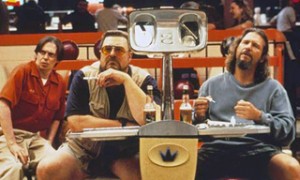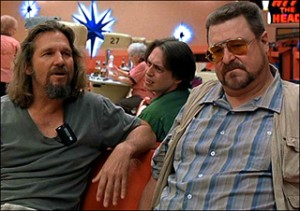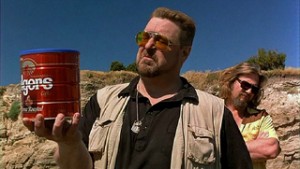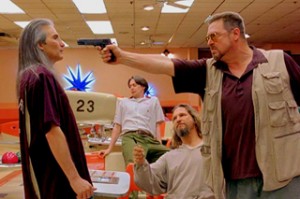Harvard Professor Robert Putnam has been recognized for his contribution to political science. According to Wikipedia, he “has been elected to the American Academy of Arts and Sciences (1980), the Council on Foreign Relations (1981), the National Academy of Sciences (2001), and the American Philosophical Society (2005). He was the President of the American Political Science Association (2001–2002). He is the recipient of the Wilbur Cross Medal of Yale Graduate School of Arts and Sciences for outstanding career achievement (2003). In 2006 Robert Putnam received the Johan Skytte Prize for the most valuable contribution to political science.”
But he really should have been recognized for his total lack of vision.
In his seminal (and I mean that for its politically incorrect connotation) 1995 work, “Bowling Alone: America’s Declining Social Capital,” Putnam bemoans the loss of community. His evidence that social capital is declining rests on eroding membership in women’s charity groups and bowling leagues. The culprits of our societal demise are women in the workforce and the advent of technology that he suspected was “driving a wedge between our individual interests and our collective interests.”
Technology, in Putnam’s view, was isolating and self-centered.
Some may try to cut Putnam some slack. After all, it was 1995 — roughly a decade before the launch of social networking sites like My Space and Facebook. But social networking was alive and well long before grandma started posting pictures on Zuckerberg’s virtual corporate walls.
 Usenet groups were thriving by the time Putnam published his nostalgic whine. Predating the world wide web, niche Usenet “newsgroups” were a virtual meeting place for people with shared interests. Over time, these online communal ties often blossomed into more traditional/physical communities.
Usenet groups were thriving by the time Putnam published his nostalgic whine. Predating the world wide web, niche Usenet “newsgroups” were a virtual meeting place for people with shared interests. Over time, these online communal ties often blossomed into more traditional/physical communities.
For instance, in 1992 a few members of the Usenet newsgroup rec.gambling met in Vegas for the first BARGE (Big August Rec.Gambling Excursion). By 1995, more than 100 people were showing up to play various community-sponsored poker and blackjack events. Hilarious online trip reports like Tiltboys at BARGE: Six Sidebets Out only enhanced BARGE’s attendance and reputation.
BARGE never failed to live up to its unofficial tagline: “There are no strangers at BARGE, just friends we haven’t met.” Soon BARGE was joined by regional events like MARGE (Mississippi), FARGO (Foxwoods), ESCARGOT (Southern California), etc.
Prevent Barriers and They Will Come
Putnam’s failing was rooted in his traditional definition of social structures. But even now, people confuse structural design/intent with activity. Usenet newsgroups were designed for online communities. But online communities can form by themselves — if you let them.
 In 2001, I was asked to beta test poker tournament software for a new subscription poker service. The developers put in a chat room that opened a half hour prior to a beta test run. It was done as almost an afterthought — and a feature primarily added to facilitate software bug discussions. But of course, that isn’t what it was used for.
In 2001, I was asked to beta test poker tournament software for a new subscription poker service. The developers put in a chat room that opened a half hour prior to a beta test run. It was done as almost an afterthought — and a feature primarily added to facilitate software bug discussions. But of course, that isn’t what it was used for.
The 200 beta participants all shared a passion for poker and were early technology adopters. Within days, we were bonding in chat. Within a few months, we were a community – the last thing the company thought it was developing.
On September 11th, the first beta user entered a blank chat line. Another did the same. Empty chat line after empty chat line followed as our community shared a moment of online silence. We were separated by thousands of miles, age, race, religion, politics, gender, education and socio-economic condition. But communities unify in the face of adversity.
 In later years, when one of the original beta testers lost her house in Hurricane Katrina, members sent cash and gift cards to tide her over. When one member was hospitalized, another member sent a laptop to help keep them connected to the community. Members married. And long after people needed the core services of the site, they stayed on to be a part of the community.
In later years, when one of the original beta testers lost her house in Hurricane Katrina, members sent cash and gift cards to tide her over. When one member was hospitalized, another member sent a laptop to help keep them connected to the community. Members married. And long after people needed the core services of the site, they stayed on to be a part of the community.
Initially blogs, portals and websites were stingy with links, blogrolls and shout outs, mistakenly believing that they would be giving away traffic. Some still believe their online space is diminished by linking out. But early poker bloggers like Iggy, Pauly and AlCan’tHang clearly understood that conversations — not monologues — built traffic and communities. Twice a year, the online poker blogger community has its own version of BARGE. In this article, I discussed some of the similarities between the World Poker Blogger Tour and ESCARGOT.
 On “real money” poker sites, solitary players battle each other for their livelihoods. After Black Friday closed the largest US online poker sites, players missed far more than a job. In this Slate article , online professional Shane (Shaniac) Schelger acknowledged “Many of my closest and most trusted friendships were formed in the poker world.”
On “real money” poker sites, solitary players battle each other for their livelihoods. After Black Friday closed the largest US online poker sites, players missed far more than a job. In this Slate article , online professional Shane (Shaniac) Schelger acknowledged “Many of my closest and most trusted friendships were formed in the poker world.”
Poker is an adversarial game. You win only if others lose. Withholding information is paramount for survival.
And yet poker developed thriving online communities — even as Robert Putnam continued to receive accolades for underestimating technology’s ability to enable them.

5 Comments